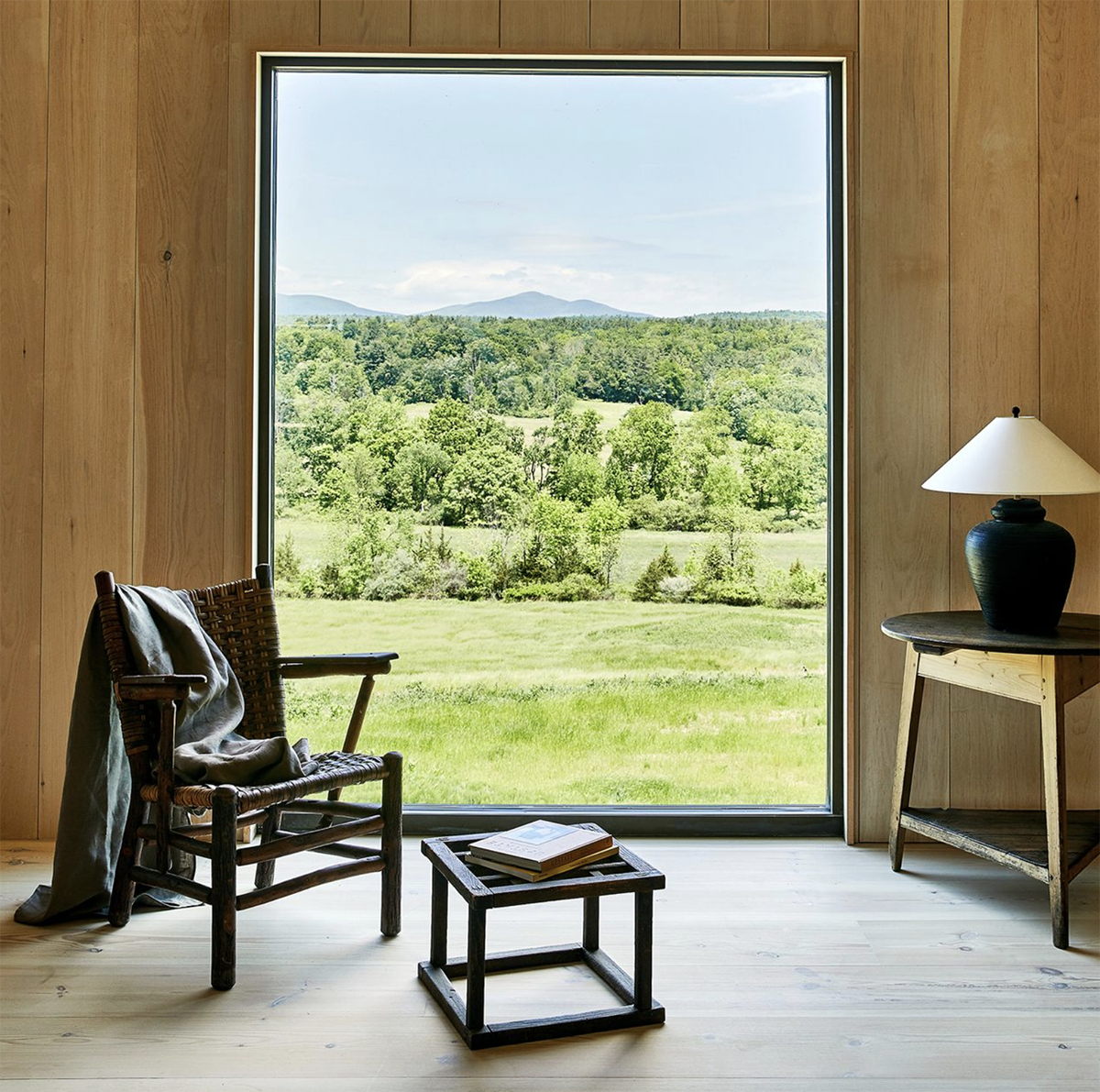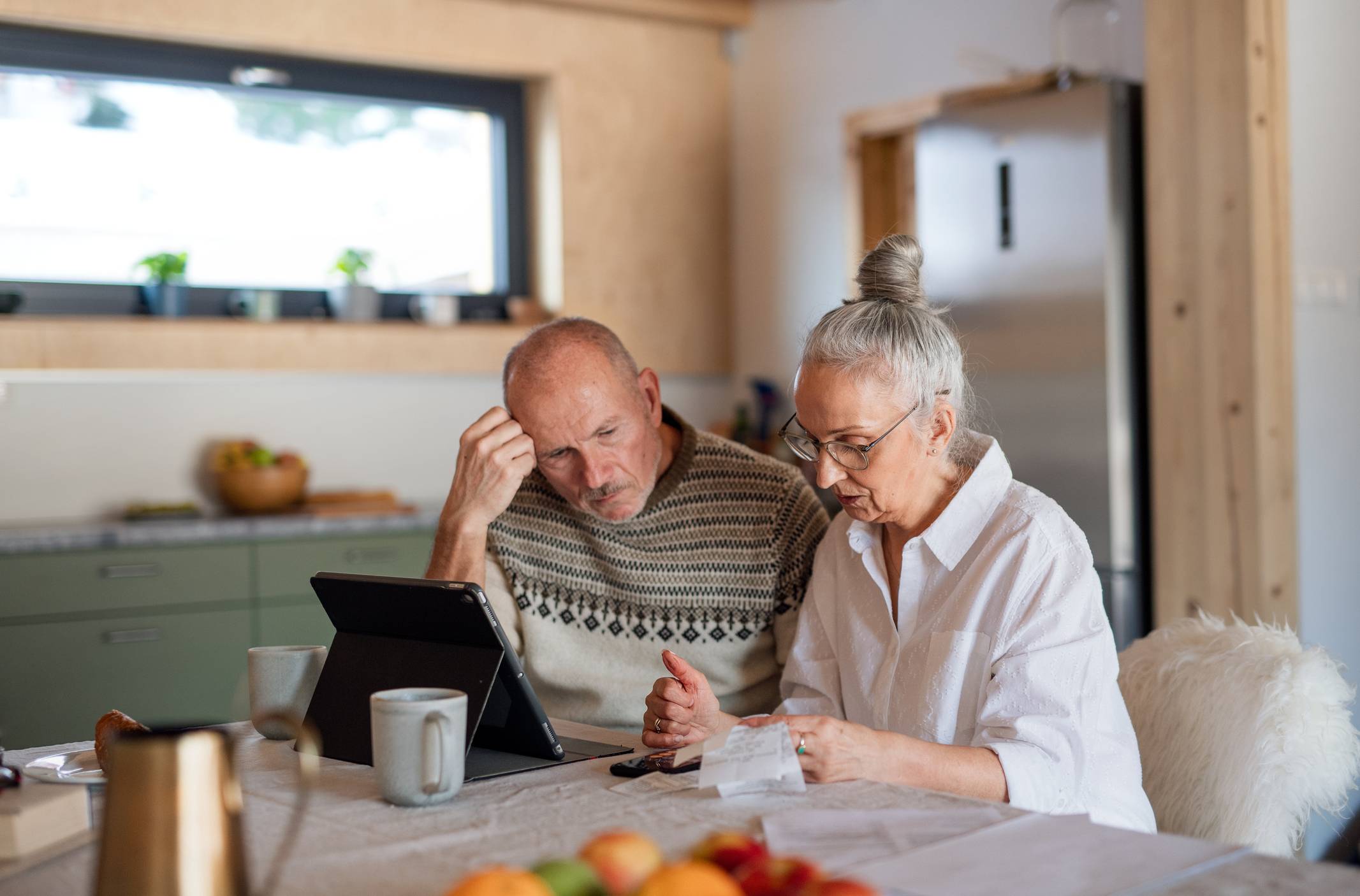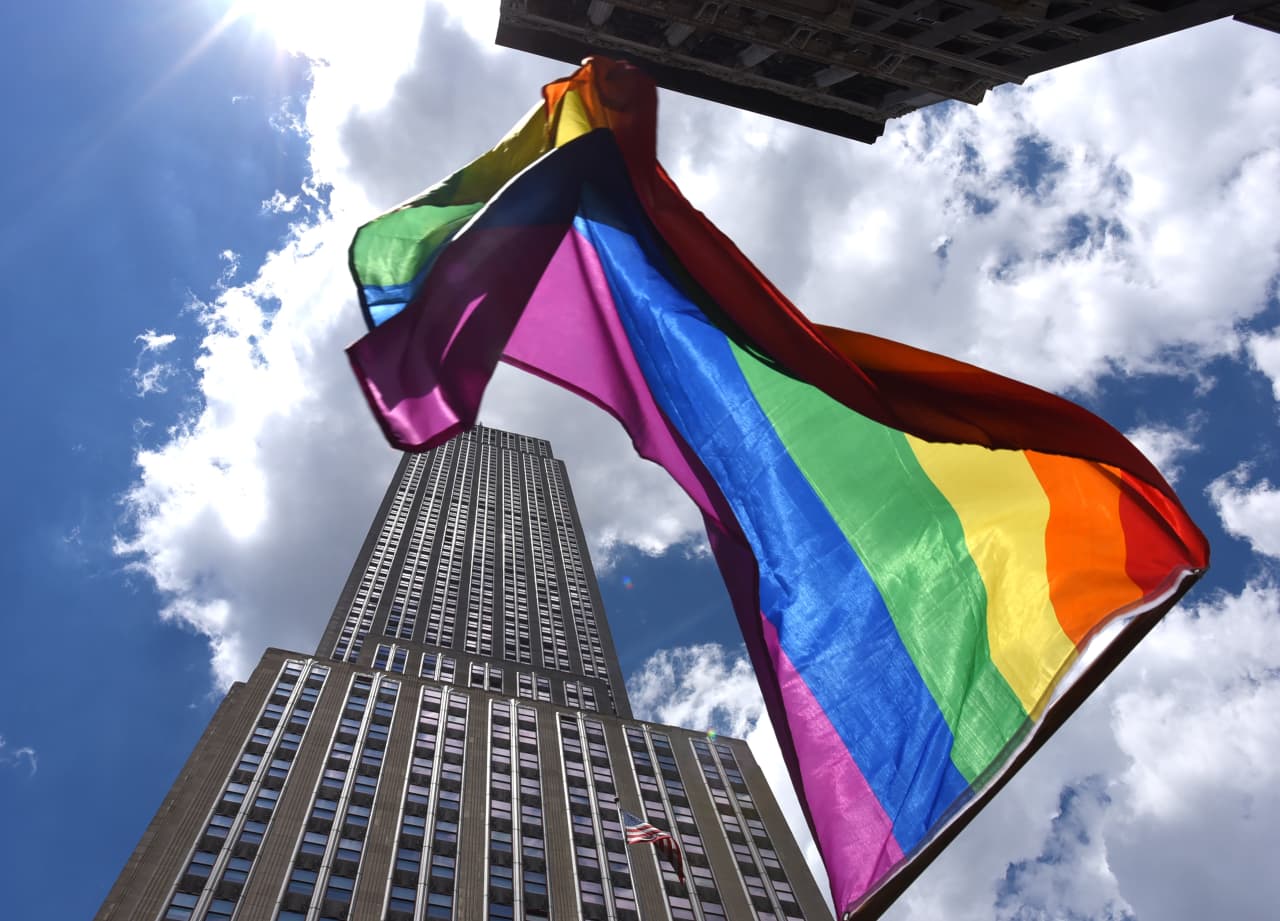This Isn’t Your Dad’s Old Golf Course
Golf’s popularity is on the rise among younger generations. Inness, a new Hudson Valley resort, responds with a cooler kind of country club.
One summer day in 2016, Taavo Somer was driving around the Hudson Valley in his Dodge pickup, scouting for locations for his next hospitality project: a small hotel with a restaurant, pool and farm shop that could serve as a hangout for both locals and weekenders. In Accord, New York, he passed a rolling swath of rural acreage dotted with drooping willows, with a view of the Shawangunk and Catskill Mountains. It was properly zoned for his purpose. Perfect, that is to say, in just about every way.
Somer’s first instinct was to drive on by, as he had plenty of times before. The reason: The place was a golf course—in other words, hopelessly uncool. “I was carrying some heavy baggage against golf,” Somer admits.
Somer made a name for himself in the early aughts as a hipster prince of New York City nightlife, creator of witty, vintage-y downtown bars and restaurants like Freemans. His forays into hospitality and fashion helped turn a generation of urban men on to taxidermy, barbershops and hand-stitched hunting moccasins.
Even as his tastes evolved, Somer recoiled at the thought of golf. And relocating two hours north of the city, to the pastoral Hudson Valley, didn’t change his mind. Somer’s idea of a typical golf club was a Caddyshack cliché of polished mahogany, coat-of-arms motifs and stiff dress codes—“all things that give me the willies,” he says.
On that day five years ago, Somer decided to visit the Rondout Golf Club, as it was then known. One of the owners treated him to his first-ever ride in a golf cart. A conversation about renovating the restaurant escalated, and Somer and a group of co-investors soon found themselves in possession of the entire property—including the 18-hole golf course, which they planned to raze in order to make way for their high-design country resort. But the local community balked at the idea of destroying the course, prompting Somer and his partners to reimagine it as a nine-hole feature that was somehow in tune with the rest of the project: Inness, a 225-acre hotel, restaurant and semiprivate country club. Much of it has just been unveiled, with a spa slated to open next summer.
The new course, created by golf industry mavericks King-Collins, sits at a remove from the scattered main compound. Of the roughly 200 people Inness is aiming to sign up for club membership, only 30 will have golfing privileges. For some guests, the course will barely register. They will be drawn instead to the resort’s mix of Scandinavian minimalism and Northeast vernacular.
The 12-room farmhouse evokes a multigenerational family home, with panelled walls, a billiards room, screened-in porches and sunset-facing Adirondack chairs. The 28 black cabins have the cool austerity of a modern Swedish or Japanese forest retreat—including, in some cases, woodstoves and outdoor soaking tubs.
A round pool (one of two on the property) complements the naturalistic landscaping of garden designer Miranda Brooks. Coffee, pastries and fresh produce from the resort’s three-acre organic garden are for sale in the greenhouse-inspired shop. It’s just outside the barn-style building that houses the main bar and restaurant, where chef Jordan Heissenberger serves local vegetables, house-smoked meats and wood-fired pizzas. The property’s 65 acres feature hiking trails and a pair of tennis courts.
For golfers, however, the whimsical nine-hole course—which is open to the public—will be the main reason to visit. And while it is true that other resorts similarly split their clientele, and that other courses allow outsiders to share the fairways with dues-paying members, Inness is a stylish anomaly, a near-accidental hybrid that is bound to get people talking about the state of recreational golf today.
Golf had a banner year in 2020. More than 500 million rounds were played in America—the highest total in 14 years, according to the National Golf Foundation. The number of first-timers was up 20 percent from the year before, the largest jump on record. The year-over year surge in participation hasn’t been this high since 1997, when a pro newcomer named Tiger Woods decimated the competition at the Masters.
The Covid-19 pandemic has been largely responsible for this spike, and it is hard to know how long its impact will last. For the moment, though, golf is riding a wave of youthful enthusiasm. Juniors (players ages 6–17) flocked to the sport in 2020, and, according to Beditz, in a recent NGF survey asking people how interested they were in playing golf now, the most affirmative respondents by age group were millennials.
According to Joe Beditz, president and CEO of the National Golf Foundation, America has more golf courses than Starbucks cafes, and 75 percent of those courses are public. Beditz likens the evolution of the sport to church, and its minority of traditional private clubs to cathedrals. “There’s always going to be St. Patrick’s,” he says, “but there are [also] new ways that church is being delivered in our culture.”
Somer enlisted Leigh Salem and Jou-Yie Chou of Post Company, a New York firm, to help with the design and architecture at Inness. The three men, non-golfers all, noticed their attitudes toward the sport change as they began discussing the project with friends and colleagues. “We got comfortable with it as we got more educated. And we realized a lot of our peer set actually golfs, which was news to us,” Chou says.
They warmed to descriptions of Scottish links where hikers and picnicking families make themselves at home, where the courses feel almost like public parks and where dogs join their owners on the fairways. An image of a different kind of golf course emerged, Somer recalls, even if he struggled to articulate it: “How it can be not this, like an organic apple that has russeting, it’s not a perfectly spray-painted red or green apple.” The team tracked down a course designer who spoke their language: Rob Collins, creator of Sweetens Cove Golf Club, a norm-busting nine-hole course in Tennessee that has bested PGA Tour hosts on must-play lists despite opening with a porta-potty for a locker room. Since then it has developed a cult following that includes Peyton Manning and Andy Roddick, both of whom are now investors. When Sweetens’s Thursday-to-Sunday bookings during the seven prime months of 2021 went on sale, they took all of 31 minutes to sell out.
Real estate developer Lee Pollock, one of the only Inness partners who golf, asked Collins if he could re-create the “wit and variety” of Sweetens Cove at Inness. He expects golfers attempting to solve his 70-acre puzzle to be alternately rewarded and flummoxed. “It’s a kick in the nuts one time around and a bowl of cherries the next time,” Collins says. Notably, it’s also the first King-Collins course to open since Sweetens Cove.
The most striking feature is the pair of double greens, each of them nearly an acre in size. “That’s fabulously different,” Beditz notes. So, too, is the fact that players can make freestyle decisions like playing the seventh hole from the second tee, assuming course traffic is light enough for this to be tried safely. The vegetation is allowed to do its own thing, too, with acres of naturalized terrain turning brown and crispy as the season wears on. The mowing plan is intentionally simple: Greens are cut one way, the drought-tolerant fairway grass another, and the rest is left to go naturally shaggy, as so many of us did during lockdown.
The multibrand outfitter—don’t call it a pro shop—is stocked with input from Adsum, a young sportswear label with a boutique in Williamsburg. It carries hiking, cycling and cross-country skiing gear, in addition to golf and tennis equipment. There will be no caddies. The course rules essentially amount to: Don’t be a jerk, and keep it moving. The word fun comes up repeatedly in discussions with all involved.“We’re not reinventing golf,” says Inness consultant Michael Williams, founder of ACL Golf and a longtime friend of Somer’s. “It’s an alignment of our values, our aesthetics [with the game].”
“Architectural school was about dropping preconceived notions,” Somer says. He’s abandoned some of the ones he had about golf, even if he still has never teed off in his life. Somer does like to walk, he points out, and it is either a genuine insight or a sign of his naivete that he considers this a meaningful way to connect with 21st-century golfers. “Being in nature is the unifying thing. It’s really about that.”
Reprinted by permission of WSJ. Magazine. Copyright 2021 Dow Jones & Company. Inc. All Rights Reserved Worldwide. Original date of publication: July 5, 2021
 Copyright 2020, Dow Jones & Company, Inc. All Rights Reserved Worldwide. LEARN MORE
Copyright 2020, Dow Jones & Company, Inc. All Rights Reserved Worldwide. LEARN MORE
This stylish family home combines a classic palette and finishes with a flexible floorplan
Just 55 minutes from Sydney, make this your creative getaway located in the majestic Hawkesbury region.
As Paris makes its final preparations for the Olympic games, its residents are busy with their own—packing their suitcases, confirming their reservations, and getting out of town.
Worried about the hordes of crowds and overall chaos the Olympics could bring, Parisians are fleeing the city in droves and inundating resort cities around the country. Hotels and holiday rentals in some of France’s most popular vacation destinations—from the French Riviera in the south to the beaches of Normandy in the north—say they are expecting massive crowds this year in advance of the Olympics. The games will run from July 26-Aug. 1.
“It’s already a major holiday season for us, and beyond that, we have the Olympics,” says Stéphane Personeni, general manager of the Lily of the Valley hotel in Saint Tropez. “People began booking early this year.”
Personeni’s hotel typically has no issues filling its rooms each summer—by May of each year, the luxury hotel typically finds itself completely booked out for the months of July and August. But this year, the 53-room hotel began filling up for summer reservations in February.
“We told our regular guests that everything—hotels, apartments, villas—are going to be hard to find this summer,” Personeni says. His neighbours around Saint Tropez say they’re similarly booked up.
As of March, the online marketplace Gens de Confiance (“Trusted People”), saw a 50% increase in reservations from Parisians seeking vacation rentals outside the capital during the Olympics.
Already, August is a popular vacation time for the French. With a minimum of five weeks of vacation mandated by law, many decide to take the entire month off, renting out villas in beachside destinations for longer periods.
But beyond the typical August travel, the Olympics are having a real impact, says Bertille Marchal, a spokesperson for Gens de Confiance.
“We’ve seen nearly three times more reservations for the dates of the Olympics than the following two weeks,” Marchal says. “The increase is definitely linked to the Olympic Games.”

Getty Images
According to the site, the most sought-out vacation destinations are Morbihan and Loire-Atlantique, a seaside region in the northwest; le Var, a coastal area within the southeast of France along the Côte d’Azur; and the island of Corsica in the Mediterranean.
Meanwhile, the Olympics haven’t necessarily been a boon to foreign tourism in the country. Many tourists who might have otherwise come to France are avoiding it this year in favour of other European capitals. In Paris, demand for stays at high-end hotels has collapsed, with bookings down 50% in July compared to last year, according to UMIH Prestige, which represents hotels charging at least €800 ($865) a night for rooms.
Earlier this year, high-end restaurants and concierges said the Olympics might even be an opportunity to score a hard-get-seat at the city’s fine dining.
In the Occitanie region in southwest France, the overall number of reservations this summer hasn’t changed much from last year, says Vincent Gare, president of the regional tourism committee there.
“But looking further at the numbers, we do see an increase in the clientele coming from the Paris region,” Gare told Le Figaro, noting that the increase in reservations has fallen directly on the dates of the Olympic games.
Michel Barré, a retiree living in Paris’s Le Marais neighbourhood, is one of those opting for the beach rather than the opening ceremony. In January, he booked a stay in Normandy for two weeks.
“Even though it’s a major European capital, Paris is still a small city—it’s a massive effort to host all of these events,” Barré says. “The Olympics are going to be a mess.”
More than anything, he just wants some calm after an event-filled summer in Paris, which just before the Olympics experienced the drama of a snap election called by Macron.
“It’s been a hectic summer here,” he says.

AFP via Getty Images
Parisians—Barré included—feel that the city, by over-catering to its tourists, is driving out many residents.
Parts of the Seine—usually one of the most popular summertime hangout spots —have been closed off for weeks as the city installs bleachers and Olympics signage. In certain neighbourhoods, residents will need to scan a QR code with police to access their own apartments. And from the Olympics to Sept. 8, Paris is nearly doubling the price of transit tickets from €2.15 to €4 per ride.
The city’s clear willingness to capitalise on its tourists has motivated some residents to do the same. In March, the number of active Airbnb listings in Paris reached an all-time high as hosts rushed to list their apartments. Listings grew 40% from the same time last year, according to the company.
With their regular clients taking off, Parisian restaurants and merchants are complaining that business is down.
“Are there any Parisians left in Paris?” Alaine Fontaine, president of the restaurant industry association, told the radio station Franceinfo on Sunday. “For the last three weeks, there haven’t been any here.”
Still, for all the talk of those leaving, there are plenty who have decided to stick around.
Jay Swanson, an American expat and YouTuber, can’t imagine leaving during the Olympics—he secured his tickets to see ping pong and volleyball last year. He’s also less concerned about the crowds and road closures than others, having just put together a series of videos explaining how to navigate Paris during the games.
“It’s been 100 years since the Games came to Paris; when else will we get a chance to host the world like this?” Swanson says. “So many Parisians are leaving and tourism is down, so not only will it be quiet but the only people left will be here for a party.”
This stylish family home combines a classic palette and finishes with a flexible floorplan
Just 55 minutes from Sydney, make this your creative getaway located in the majestic Hawkesbury region.






















